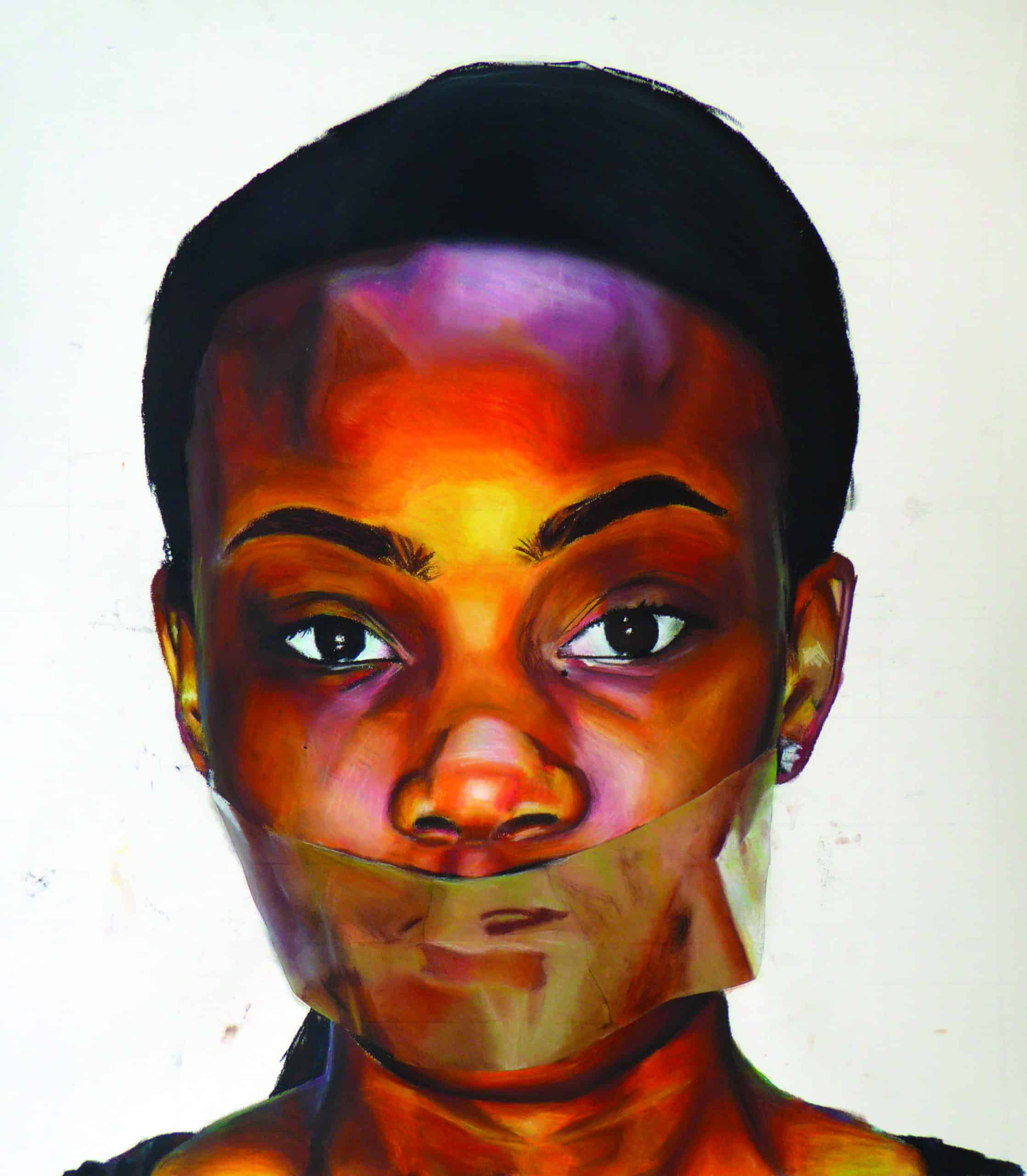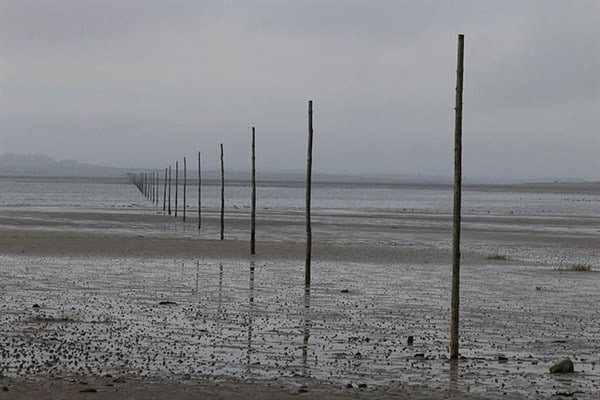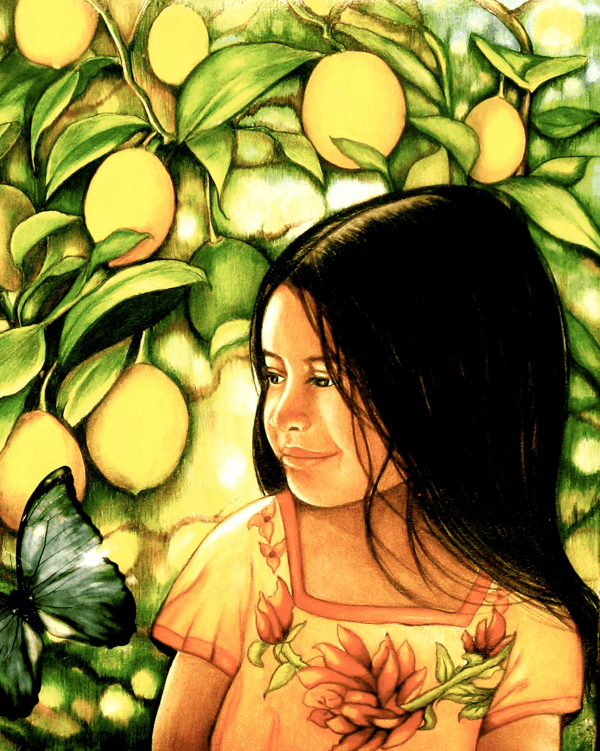Deputy Head's View - 19 June 2020
Deputy Head’s View – 19 June 2020
Between the Northumbrian coast and the island of Lindisfarne is a causeway that can only be crossed at low tide twice a day. Alternatively, one can walk, best in bare feet. In order not to deviate from the safe sand into the quicksand, you walk from one pole to the next until you reach the other side. When you set off, you think it’s only going to take twenty minutes, but the poles keep coming and in reality it takes much longer. Long enough in sticky sand for it to feel like a trek. If your timings go awry and you are caught out by the tides, there are refuge huts built on sticks, where you can wait it out until it’s safe to continue.

Times when we are betwixt and between are often called ‘liminal spaces’ and I would like to suggest we are in those times now. ‘Old normal’ and ‘new normal’ have become familiar phrases. The ‘old normal’ has definitely gone, and we’re not quite sure what the ‘new normal’ will be like. I expect that like me, this period has had its ups and downs – not so much flattening the curve, but watching the waves crashing down, sometimes keeping my feet, but often being dragged under and having to stand up again. In liminal times, transformation happens. They are often difficult times and leave us jaded, but if we can stick with them, choices open up for us and we are able to embrace the ‘new normal’ – even though it wasn’t what we were expecting.
I take my hat off to our young people as they make their way through these times. Good to have had Sports Day on Wednesday – still time to do those challenges or to be part of the music events, Ready, Steady Cook, art competitions, English department Twitter challenges. We look forward to seeing some of our older girls in school in the next few weeks – another move towards our new normal.
With best wishes,
Allison Hadwin – Deputy Head (Chaplian & Pastoral)
Pause 4 Thought - 19 June 2020
Pause 4 Thought – 19 June 2020
As I reflect on the last few months, one of the observations I would make is that this period has been full of uncertainties – whilst at the same time feeling strangely monotonous, and certainly tiring. This seems to be true whether one is going out to work, or is working from home, or is furloughed; whether one’s days have complex schedules or none; whether one is living alone or in a house bursting at the seams. We all, children included, can find it hard at times to find the energy to engage with the, rather unusual, lives we are currently leading.
Timely therefore, that the final value/strength we are looking at this term is that of Vitality or Zest. Vitality comes from the Latin ‘vita/vitae’ meaning ‘life’; so we use it to describe being full of life, energy and strength. Another similar word is ‘zest’ – defined as living life with a sense of excitement, anticipation, and energy. Approaching life as an adventure, such that one has “motivation in challenging situations or tasks”. Zest is essentially a concept of courage, and involves acquiring the motivation to complete challenging situations and tasks.
I invited the girls in my assembly to explore the zest of a lemon – tasting it perhaps to discover how it wakes us up/makes our mouths go tingly! When we live with zest, we exude enthusiasm, excitement and energy while approaching tasks in life. Hence, the concept of zest involves performing tasks wholeheartedly, whilst also being adventurous, vivacious and energetic. Zest is a positive trait reflecting a person’s approach to life with anticipation, energy, enthusiasm and excitement.
Inevitably, at times it will be very difficult to live with vitality and zest; any of you who have experience of depression will know how this is characterised by an absence of these feelings. We then need to take action, to seek help perhaps, so that we are able to re-engage with our life force. Living with vitality does not mean that our lives will always be happy or easy; it does mean that we will be able to respond to challenges and difficulties with courage and awareness – of ourselves and of others.
Have a good weekend.
Mrs D-C
TELOS Essay Competition
NEWS
TELOS Essay Competition
Izzy's essay:
Apple doesn’t sell the best computers. They don’t sell the cheapest computers. But people will queue through the night to be the first to buy the latest apple device. Why would someone be compelled to do this when they can order better and cheaper equipment online from the comfort of their own home? Apple is more than just a company. Apple has become a movement and every movement has a great leader. So, what are the qualities that Steve Jobs and many other successful leaders have that can lead to this level of loyalty and sustainability?
Every great company or organisation begins with a great idea. To lead a company, it is essential to have a leader who has a clear vision based on that great idea, but what is more important is the ability to communicate this vision with those around them. Why do people follow a leader? If the motivation and vision of the leader is in line with how you think then you are more inclined to subscribe to that organisation’s product or services. A great leader can clearly articulate their vision and make others believe in it too, this is not exclusive to the world of business, all great leaders must be able to communicate their vision to others. Take Martin Luther King, from the Civil Rights movement for example. He is one of the most influential, most recognised leaders ever to have walked the earth and I for one cannot think of a more clearly articulated vision than that presented in his iconic “I have a dream” speech. Martin Luther King is the leader of a movement that has been sustained for decades. A good leader can lead a successful company or an organisation, but a great leader can create a movement which can outlive them. Bringing this back to the world of business, Steve Jobs had a vision in 1980, his vision was “to make a contribution to the world by making tools for the mind that advance humankind”. Apple’s business and marketing strategy mirrors this vision perfectly, they don’t sell on the number of megabytes or gigabytes, they don’t advertise the number of megapixels in the cameras on their products. What they do sell is a lifestyle… “Think Different” is the tagline to their advertising. What they are saying is that if you want to be different, buy an Apple product and help to advance humankind. Steve Jobs clearly communicated his vision to his team, his peers and the public and that is what makes him such a successful leader. The products that Apple sells hardly compete with the power and ability of some of their competitors but it is due to their leader and his vision that Apple has become one of the most successful computer hardware companies ever to have existed.
Hand in hand with the perfect vision and the ability to communicate this vision to others, a great leader needs to employ people who have a shared passion for this vision. Everybody within a business needs to have a purpose, they need to understand where they fit in and their role within the company on the journey towards achieving the vision. If each and every member of staff believes that what they are doing is making a difference, then each and every member of staff will be highly motivated. In the context of business, they will not mind working longer hours, picking up extra responsibilities and doing things that are not necessarily featured in their basic job description. As a leader, it is not about employing the most skilled in the industry, but rather those who can collaborate and evolve as the company evolves. If the culture within an organisation is right, everyone will be comfortable when it comes to speaking up, having new ideas or trying new things to further the vision of the company. This culture must stem from the top. The best leaders should create an atmosphere in which all colleagues are relaxed and willing to try new things and present their ideas, no matter their status within the company. If every member of staff feels like their ideas matter, then they will further understand their purpose when it comes to achieving their collaborative vision.
Trust – the followers need to trust that the leader has their best interests at heart and at all times is trying to further their Cause, i.e. the furthering of the vision. The recent Coronavirus pandemic has really shown a need for real leadership and has tested trust to the limit. A comparison of the ways in which different organisations have handled the challenges brought on by Covid are as follows:
Three organisations have recently announced job losses and other drastic impacts caused by Covid. Two of these organisations are Fintech start-ups with inspirational leaders, the third is a multinational airline with thousands of staff. The leadership styles are very different… The two FinTech’s, GoCardless and Airbnb have a philosophy of “we’re in this together” they even use those words in their very public announcements related to the impact of Covid 19. Hiroki Takeuchi (GoCardless)[1] and Brian Chesky (Airbnb)[2] felt it necessary and felt they owed it to their colleagues to be completely transparent about the decisions made in reaction to Coronavirus. Some of the news was really negative and some people lost their jobs, but the key was that everyone was impacted, from the top to the bottom, everybody felt some pain. In addition, the information was made public in case other organisations could find hints or tips through their approach. Despite devastating news, there has been only praise and congratulations for the way that the situation was handled. Contrast that with IAG, the parent company of British Airways, who had no consultation, no transparency, and were seemingly motivated purely by the bottom line, British Airways immediately laid off 30% of its workforce. The message was not delivered by the CEO, it was unexplained and there was definitely no sense of “we’re in this together” as the management team all held onto their jobs. The difference in leadership and the approach from Airbnb and GoCardless is all about trust. The staff in both of these organisations trusted that their leaders were making decisions for the right reasons. They will stick with GoCardless and Airbnb and they believe they will come out of this situation stronger than when they went in. British Airways on the other hand… would you want to work there?
So, how does a leader ensure that his vision is sustainable and long lasting? Some may argue that it’s easy to have a culture of openness and trust within small companies but as you grow, you are bound to change as you have more and more people between the leader and every level of staff. In Simon Sinek’s latest book ‘The Infinite Game’, he argues that the culture of the organisation is set by the leader so that the vision which Simon refers to as the ‘just cause’ continues long after the leader leaves the organisation. The mindset has become a part of the organisation and its employees, hence making the companies values sustainable and everlasting. Taking that thinking, every one of us is just here to make a difference to moving the project forwards. Whether in work, hobbies or family units, we all have a purpose within the organisation we have chosen to join and will all work hard to ensure that the vision is realised and carried through to those who buy our products, play in our teams or rely on us as they grow that’s created through this culture.
So, what are the qualities that Steve Jobs and many other successful leaders have that can lead to this level of loyalty and sustainability? All leaders need a vision and a way to articulate that vision. Through their words and actions, they will be able to attract followers who believe in the same thing. They will create a culture in which followers are able to understand their purpose as well as have the opportunity to express themselves and grow. This requires trust in the organisation and its leadership. All these things start with the leader. Great leaders lead more than just an organisation; they lead a movement.
[1] https://medium.com/@hirokitakeuchi/managing-our-costs-through-covid-19-6fe4e0a12e2d
[2] https://news.airbnb.com/a-message-from-co-founder-and-ceo-brian-chesky/
Pause 4 Thought - 12 June 2020
PAUSE 4 THOUGHT
Pause 4 Thought
12 June 2020
‘Be curious, not judgemental.’ Walt Whitman
It has been wonderful to welcome back many children into school this week. Nursery, Reception, Lower Prep and LIII girls were pleased to meet their friends and teachers again and quickly settled in and adapted to the adjusted arrangements in school. We have taken preventative measures to ensure the safety of all. We have done this in a low key but robust manner so that the children and staff are protected whilst making the environment as welcoming as possible.
This week in assembly we took our final look at Judgement – exploring how it differs from being ‘Judgemental’. Having good judgement means taking time to find out, not leaping to conclusions, not assuming or using our own preconceptions. Judgmental describes someone who forms lots of opinions — usually harsh or critical ones — about lots of people. Judgmental types are not open-minded or easygoing. Often not thinking – going with what we’ve heard others say or making assumptions or labelling. But we make the mistake of thinking it’s all about the other person, when really it’s all about us as this short film illustrates.
It is perhaps serendipitous that we are considering Judgement at this moment in time when the Black Lives Matter movement is so prominent. You will be aware of the depth of feeling across the world currently on this issue. Our Chair of Governors has made a statement on our website and will be writing to all our community again shortly. We obviously welcome the chance to engage with our alumnae, current students and other members of our community on this issue – I know that this has been subject for useful discussion in some Google Meets recently with girls. We are privileged in the Junior School to have an extraordinarily diverse student body whom we encourage to be articulate and empowered on this and other subjects. Our commitment to the tenets of the International Baccalaureate, combined with our values-based approach to education, creates a positive environment within which we must continue to strive to promote anti-racism and to disable unconscious bias.
Have a good weekend.
Mrs D-C
SHARE ON
Deputy Head's View - 12 June 2020
HEAD’S VIEW
Deputy Head's View
Allison Hadwin - Deputy Head (Chaplain & Pastoral) 12 June 2020
In a week where our young people have led the way with their passionate call for justice for all, I begin the Gateway with a photo of Maya Angelou, one of my role models, and I invite you to be inspired as you listen to her rendition of ‘And still I rise’.
Over 600 of our present pupils and alumnae have signed a letter to the school, asking that we do more to defeat the scourge that is racism, and this is what we as a school will pledge to do. We are proud of our multicultural and diverse community, where every person is equally precious, and is of infinite worth. We will continue to uphold our core values: courageous, honest and kind, as we seek to implement those changes necessary to bring about greater understanding and a better world.
A response from the school by our Chair of Governors can be found on our here.
Amnesty Online Newsletter
The Abbey School Amnesty International Society have posted their second online newsletter. It specifically addresses the issues raised by the Black Lives Matter movement. Please do read it. A copy can be found attached to the Gateway.
Support of BLM Movement
An U6 Art student and Art Scholar, Felicity has created this response to the BLM movement.
Watercolour and gold ink.

“Everyone deserves the freedom to spread their wings and break the mask others place upon their faces” This is the title/ caption I gave the piece when sharing it.
I created this piece in light of the Black Lives Matter movement which has been the main focus of much of the news and social media recently. I was unsure what to personally say about it, yet still wanted to support the movement. Artwork is how I have been able to communicate my thoughts in the past so this is how I came to create the piece.
I wanted the piece to represent the strength of the people, the traumatic things that have happened, as well as the value of the freedom they fight for. A crouched, relaxed figure holds a certain strength. The hand on the throat and the quote “I can’t breathe” written across the cheek symbolises George Floyd as a reminder of how he passed and what sparked the movement. I gave the figure a cracked mask to represent how others might view black people as a single body and not take the time to look at the person beneath before taking action. Wings symbolise the freedom the people fight for. Small highlights of gold show the value of this freedom.
SHARE ON
School response to BLM and tackling inequality
NEWS
School response to BLM and tackling inequality
12 June 2020
Our commitment to tackling issues of inequality
The recent death of George Floyd in the USA whilst in police custody has ignited waves of community protest all over the USA and beyond. At the heart of these protests is the shared commitment to strive for a more just and equitable society where people’s race or ethnicity is never the reason for their treatment, rights or opportunities.
I am confident that The Abbey’s commitment to the goal of treating all forms of inequality as anathema is evidenced by our actions, support and broad curriculum catering for a very happy, inclusive and diverse population of students.
We regularly discuss all inequality issues, including anti-racism, at The Abbey and maintain our values and principles through the application framework of the Abbey Learner Profile and the running of themes of investigation throughout the academic year with our students. There is no question that these principles are at the very heart of our mission and values statements for the School.
I have seen several conversations with our alumnae and students. These have been extremely constructive so far, and I thank all who have come forward with their experiences, perspective and offers to collaborate and help.
Open and trusted communication on any matters of concern is both valued and crucial, and the School looks forward to continuing this important dialogue.
Mrs. Elizabeth Harrison
Chair of Governors
SHARE ON
Pause 4 Thought - 5 June 2020
PAUSE 4 THOUGHT
Pause 4 Thought
5 June 2020
‘Those who cannot change their minds cannot change anything’ George Bernard Shaw
I hope you all enjoyed half-term – and that LIII girls enjoyed their ‘virtual residential’ this week, to Bude.
This week I spoke with the girls in assembly about how to make a judgement, particularly when the issue is complex. I stressed the value of keeping an open mind – of being receptive to new and different ideas or the opinions of others, the value of seeing many points of view.
Perspective can make all the difference.
However, it does not mean that we have to agree with everybody – rather that we listen to them, even if we then disagree. The formality of a structured debate, such as the one I shared with the girls concerning the pros and cons of school uniform, gives us the opportunity to practise drawing together reasoning and arguments for and against – to practise listening to opposing points of view and to then form our individual decision. Our legal and democratic systems of law and of government are founded on similar principles.
So to help us avoid ‘all or nothing’, ‘black or white’ thinking it is useful to:
- Open our mind to new ideas. Keeping an open mind can help us to think about the world differently. When we remain open-minded, we’re likely to perceive a situation as it is, rather than how we think it should be.
- Let go of our expectations. Letting go of expectations is one of the keys to ridding our mind of all-or-nothing thoughts. Expectations — those little “should” and “should nots” in your mind — can really force you into thinking in extremes.
- Look for the grey areas. In almost every situation, there are different layers and different ways of looking at whatever you may be faced with. It’s easy to slip into that “black or white” thinking because it comes so readily to most of us. However, it’s worth giving any situation you see in black or white a little more thought to see what’s really happening rather than accepting your initial reaction.
- Try to see things as they are. We can tend to see things the way we want to see them rather than the way they really are and this can be a major problem. When you actually look at the situation as it is, you’re much more likely to see the layers and complexity of it. We’re much more likely to avoid extreme thinking if we do what we can to remove ourselves emotionally from a situation and really look at what’s actually happening.
- Avoid labeling with a single word. This one sounds simple, but it’s important. When we think of something in terms of one word, we’re limiting it immediately. Think about it like this… If someone asks how your day is, you usually respond with words like “Good!” or “Terrible.” When you label a situation/person/etc. with a single word or phrase, we’re instantly limiting it. Opening ourselves up to describing things in detail (at least in our mind) helps avoid those thoughts in black and white.
We’re looking forward to welcoming many of our Nursery, Reception, Lower Prep and LIII students into school next week. Whether your daughter is in school or continuing to work from home, we will continue to do all that we can to support her during these ever-changing times.
Mrs D-C
SHARE ON
Deputy Head's View - 5 May 2020
HEAD’S VIEW
Deputy Head's View
Allison Hadwin - Deputy Head (Chaplain & Pastoral) 5 May 2020
There is always a tension in schools between education as a high moral purpose, which transforms both the individual, society and civilisations, and the lesson-by-lesson, week-by- week business of passing exams, gaining qualifications, going to university. The two are, of course, inextricably linked: teachers make decisions about what books are to be studied, what periods in history, which parts of the world. During lockdown we have all learned that science is not about facts but about interpreting data and, more significantly, that not all scientists interpret the same data in the same way. (I’ve had this sentence checked by Mrs Johnson, our Director of Science)!
Education happens not just in school. We have been providing the best quality remote lessons that we can for all our pupils, mindful of the situation of all our community: girls, parents and teachers, and this will continue until July 10th when term ends. Our old certainties and ways of working have gone by the board. Uncertainty and ever-changing situations are the new normal. ‘Zoom’ has nothing to do with rockets and fast cars. We have upskilled incredibly quickly in order to be able to move schools online. Our homes really have become our castles and for some, sadly, prisons. When there is time to reflect, it is possible that we will have found reserves we didn’t know we had; become more independent and self-reliant in our learning; reappraised what we give value to. (You may have seen Vogue’s June covers of a midwife, a train driver and a supermarket assistant).
We will be back – hopefully in September, as a school community. We may have to do this gradually and in phases. We must ensure that our education reflects our values and, as Tanisha’s art reminds of the death of a young black man in 2014, who also said ‘I can’t breathe’, our education MUST also ensure that every life matters. And for those of us who have benefited from the inequalities, WE must be prepared to change.
As ever, best wishes for the weekend and the week ahead.

SHARE ON








